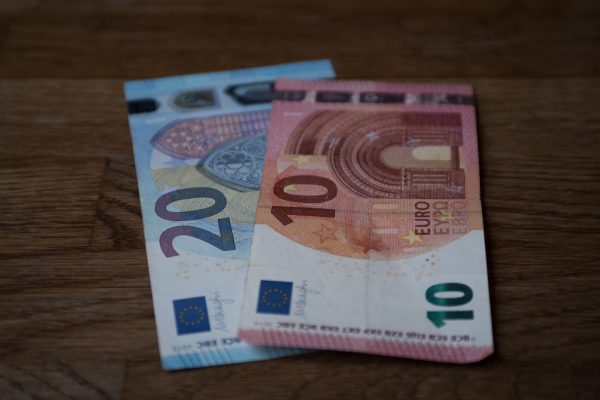
If you do rehabilitation work, masonry, plumbing,… Etc. and you collect in cash, you should know that there are certain limitations to this practice. Read on and we’ll tell you everything.
Preventing and combating fraud
Law 7/2012 on the prevention and fight against fraud prohibits payments in cash (in cash or bearer cheque) for an amount equal to or greater than 2,500 euros or its equivalent in foreign currency.
Although this limitation has some peculiarities:
- The limitation does not apply if the two parties are particular. One of them must therefore be an entrepreneur or a professional.
- The limit is 15,000 euros if the payment is made by an individual not resident in Spain.
- If this limitation is breached, the Treasury can impose a fine of 25% of the amount paid in cash, being able to impose it both on the payer and on the person who collects, or both (although the person who denounces the facts is not punished).
For the purpose of calculating the amounts indicated, the amounts of all transactions or payments in which the supply of goods or services may have been divided shall be added together.
What is considered Cash Payment?
Cash shall be understood as the means of payment defined in article 34.2 of Law 10/2010, of 28 April, on the prevention of money laundering and the financing of terrorism.
In particular, they include:
- Paper money and metallic currency, national or foreign.
- Bearer bank checks denominated in any currency.
- Any other physical means, including electronic means, designed to be used as a means of payment to the bearer.

Limitations
In the case of transactions that cannot be paid in cash, the parties involved in the transactions must keep the supporting documents for the payment, for a period of five years from the date of the payment, in order to prove that it was made through one of the means of payment other than cash. Likewise, they are obliged to provide these supporting documents at the request of the State Tax Administration Agency.
This limitation shall not apply to payments and income made to credit institutions.
If for any reason an administration asks to justify a cash payment, it is possible to prove it with the following documents:
- A receipt.
- Payment letters signed or validated by competent bodies or entities authorized to receive payment.
- Certifications accrediting the income.
- Any other document that has the character of proof of payment for the Treasury.
In addition, the Treasury has established some criteria:
- If several independent deliveries of goods or services are documented in the same invoice, the limitation only affects transactions with an amount from 2,500 euros. Thus, if an invoice of 4,000 euros includes two separate transactions of 2,000 euros each, that invoice can be paid in cash.
- In successive tract operations (rents, supply contracts, consultancy fees, etc.) the moment in which the payments are due according to the contract must be taken into account, as well as their amount. If the payment due in each installment (for example, the monthly rent) is less than 2,500 euros, it can be paid in cash.
- Transactions of 2,500 euros or more cannot be paid partially in cash, even if what is paid in cash does not reach this limit. Nor can this be done even if the payment of a part is deferred.
Let’s take an example:
A company has sold a machine to a customer for 8,000 euros. The buyer offers to pay you 2,400 euros in cash and the rest by bank transfer.
Well, it is not appropriate to ‘play it’. If the Treasury learns of this sale, it could impose a penalty of 25% of the amount charged in cash, that is, 600 euros (2,400 x 25%).
Special cases
Payroll by employer or professional
It is questioned if it is subject to the limitations to the payment by an employer of the monthly payroll to its employee that amounts to 3,000 euros.
It is a provision of services (operation) in which one of the parties involved acts as an entrepreneur or professional, so it is subject to the prohibition of payment in cash if its amount is equal to or greater than 2,500 euros.
Article 29.4 of the Consolidated Text of the Workers’ Statute Law (approved by Royal Legislative Decree 1/1995, of 24 March) allows the payment to be made in cash (“in legal tender”), but if its amount is equal to or greater than 2,500 euros this possibility will be limited by article 7 of Law 7/2012.
The payment to each worker is a different operation, so the limit applies to each of the workers and not to the total payroll paid by the company. Thus, if an employer pays some workers a salary of less than 2,500 euros and others an amount greater than that amount, he is only subject to the limitation to cash payments for the latter payrolls.
Payment of receipts at post offices
The question arises as to whether the limitations on cash payments apply to receipt payments at post offices. It is noted that these payments usually correspond mainly to utility supplies (water, electricity, gas,… etc.).
The collection service consists of customers who wish to do so being able to go to the post offices to make certain types of payments, which are normally supplies.
In the case of payment of supplies, the recipient of the payments shall be a person or entity acting in an entrepreneur or professional capacity, and subject to limitations on cash payments. Post offices, when acting in the name and on behalf of collectors, must comply with the limitations that the Law imposes on their constituents. Then, the post offices will not be able to accept the cash collection if the amount of the operation is of an amount equal to or greater than 2,500 euros.
Cash payment in bank account of the recipient of the payment
It is questioned whether the customers of a company can satisfy in cash the payments exceeding 2,500 euros in the bank account of the company, when the person or entity that makes the deposit and the operation or invoice number is identified.
Article 7.One.5 provides that the limitation on cash payments shall not apply to payments and income made to credit institutions. Therefore, if the customer makes the deposit exceeding 2,500 euros directly into the bank account indicated by the company, identifying the operation or invoice number to which the payment refers and the person who makes the tax in cash, the limitations on cash payments are not breached.
Both participants, payer and receiver, must keep the proof of payment for a period of five years from the date of the same (art. 7.Uno.4 of Law 7/2012).
Cash payment of taxes and penalties
It is questioned whether a tax or a fine amounting to more than 2,500 euros can be paid in cash at the cashier of a Local Corporation.
The legal-tax relationship is the set of obligations and duties, rights and powers originated by the application of taxes (art. 17.1 LGT), so it is not properly an operation, but the exercise of a public power that determines the payment of an obligation under public law ex lege. The same applies to fines or financial penalties resulting from infringements of public law.
Therefore, in the event that the regulations of local taxes do not establish a specific means of payment of a tax and allow payments by Cashier, the payment could be made in cash, even if it exceeds 2,500 euros.
Security paid in cash
In the case of rentals, this rule is applicable when either party is an SA or an SL. And it is also in the leases of premises (since the tenant will be an entrepreneur or professional), or when the owner manages the rent as an economic activity.
Well, with regard to the deposit, if it is deposited with the corresponding body of the autonomous community, the limitation does not apply (so it can be paid in cash whatever its amount). On the other hand, if the owner keeps the deposit in his possession, without depositing it, this limitation does apply.
If you have any questions or need any clarification regarding cash payments, you can
contact
any of our advisors to help you resolve them.









